EuroPython 2010 Speaker Bios
Mary Mooney
Sheila Pinner
Ali Afshar
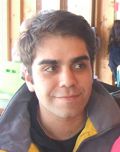
Retired medical doctor. Technical director, Microlink PC, a company specializing in assistive technology. Enjoys programming and open source. An extremely serious person.
Albertas Agejevas
Albertas is the CEO of Programmers of Vilnius, a consulting company that develops web applications with Python.
Albertas has been programming Python since 2001, is an occasional contributor to Zope and related projects, and a fan of Open Source. He lives on the outskirts of Vilnius with his wife, 3 children, a dog and a cat.
Emily Bache
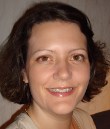
Emily Bache is an experienced software developer and programming coach, with a preference for agile methods and Test Driven Development. Over the past decade Emily has worked in a variety of organizations from very small to very large, including many years at AstraZeneca. There she was responsible for the development of an award winning platform for computational chemistry, which was implemented in python. As well as speaking at international conferences such as XP2009, agile2008 and Scandinavian Developer Conference, Emily runs a local python user group.
Geoffrey Bache

Geoff Bache is an experienced software developer and works for Jeppesen Systems (part of the Boeing Group) in Gothenburg, Sweden. Geoff has particular interests in agile methodologies and dynamic languages, and has pioneered the use of automated system acceptance tests to facilitate frequent communication and feedback between developers and subject matter experts in his organization. Over the years he has used and developed various techniques and tools, most recently the acceptance test tool “TextTest” and the Python GUI recorder/replayer “PyUseCase”. Geoff has presented his work in papers, workshops and tutorials at various conferences in Europe and the USA, including XP, Agile, Europython and Expo-C.
Richard Barrett-Small

I started programming with Perl; munging SGML in an electronic publishing house. I soon moved over to Python, MySQL and XML data processing.
Keen to move into web development, I worked for an agency using OO PHP and MySQL. I learned Django simultaneously, developing http://viewfilm.net/.
My current role at the Victoria and Albert Museum has given me the opportunity to return to professional Python programming with a committed team (whilst still working with PHP and other technologies) and use it to improve the V&A's web presence.
Denis Bilenko
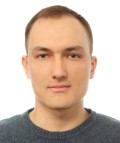
Denis has been developing network applications for 8 years, always looking for better ways to write them. He is the lead developer of gevent (http://gevent.org) and past contributor to eventlet (http://eventlet.net). Being a Python enthusiast, he added it to the toolchain in more than one organisation. Besides maintaining gevent, he's working on http://rss.im, a notification service, and occasionally freelancing.
Austin Bingham
I'm a software developer, originally from the US, now working for the Norwegian company Roxar where I work on RMS, one of the world's leading oil reservoir modeling tools. I've long had an interest in multi-language development, and particularly in development with C++ and Python. Besides my programming activities, I enjoy cooking, biking, music, and, for reasons both practical and recreational, learning Norwegian.
Kit Blake
Kit Blake steers the business course of Infrae, a software services company based in Rotterdam, the Netherlands. The company builds open source solutions for content, asset, and document management, including the Silva CMS, the MOAI Server, and the Document Library. Python is the company's lingua franca.
Paul Boddie
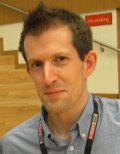
Paul has been working with Python since 1995, pushing it into various workplaces and making it perform Web- and database-related tasks. From 2006 onwards, he has been involved at some level with EuroPython organisation, administering various conference-related tools and even developing the theme for the 2008 conference site. He has gradually become more and more involved with MoinMoin theme and extension development and with the deployment of various tools (some not necessarily written in Python) to help run software projects both on a personal level and at his workplace.
Paul moved to Oslo, Norway in 1998 after having lived in France for a couple of years. He is originally from Manchester in the United Kingdom.
Stuart Bowness

I'm the lead interface designer and founder of Simple Station, a creative web design/application development studio, which is located in Victoria, British Columbia, Canada (Though I was born in the UK).
I'm a firm believer in the development of clean, simplistic and easy to use interfaces. In late 2008, we embarked to build the world's first open-source python based video CMS, and it's been a fun and interesting ride over the past year.
I'm an avid nature lover with a passion for sailing, surfing, diving, climbing, hiking and biking. I also have a small, but growing passion for photography.
Bruce Lawson (Opera)
Michael Brunton-Spall
Michael Brunton-Spall is a web developer, working for guardian.co.uk, the website for the Guardian newspaper; the worlds leading liberal voice. As his job mostly involves full time java coding, he uses every opportunity to utilise python where possible, and has presented on Google AppEngine and Django a number of times.
Brett Cannon

Brett is wrapping up his Ph.D. in computer science at the University of British Columbia with hopes to be done in September. In his spare time he is one of the core developers of Python.
Wesley Chun

WESLEY J. CHUN, MSCS, is the author of Prentice Hall's bestseller, "Core Python Programming" (http://corepython.com), its video training course, "Python Fundamentals" (LiveLessons DVD), and co-author of "Python Web Development with Django" (http://withdjango.com). In addition to being a software architect and Developer Advocate at Google, he runs CyberWeb (http://cyberwebconsulting.com), a consulting business specializing in Python training and software engineering. He has over 25 years of programming, teaching, and writing experience, including more than a decade of Python. While at Yahoo!, he helped create Yahoo! Mail and Yahoo! People Search using Python. He holds degrees in Computer Science, Mathematics, and Music from the University of California.
Charlie Clark
Charlie Clark is a consultant specialised in Content Management Systems based in Düsseldorf in Germany. Not a programmer by trade he has been able to make use of Python to solve his and customer problems.
Juan José Conti
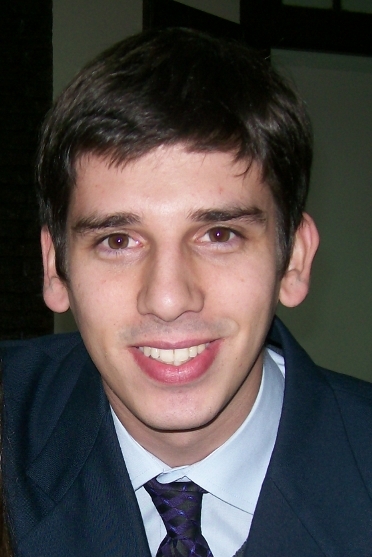
25 years old software engineer from Argentina. Free Software enthusiast.I use python for job, study and fun. Member of PyAr (Python Argentina), speaker in different local conferences and organizer of Python en Santa Fe (a Python day of talks in Santa Fe city)
Robert Cumming
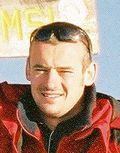
Robert Cumming is an engineer turned programmer - learning python in spare time and now using it commercially. Originally from the up north near the artic circle, he has lived and worked all around the world. Working with formula 1 and aerospace to supporting databases. He is the main developer of a new commercial code written in python which aims to make life easier for engineers.
Antonio Cuni
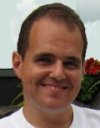
Antonio Cuni has been a geek and computer hobbyist since he was a child. He has been actively collaborating at PyPy for 4.5 years, first by writing the CLI/.NET backend as a part of his master thesis, then as a researcher at HHU University of Duesseldorf.
David Jones
Bart Demeulenaere
Awaited from Bart.
Massimo Di Pierro
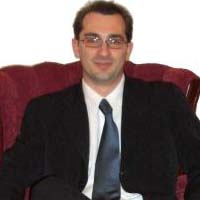
Massimo is an Associate Professor of Computer Science in the School of Computing of DePaul University in Chicago where is the Director of the MS in Computational Finance. He has taught Object Oriented Programming, Foundations of Computer Science, Analysis and Design of Algorithms, Information Assurance, Secure Electronic Commerce, Network Programming, Parallel Algorithms, Scientific Computing, Monte Carlo Simulations and Web Frameworks.
Massimo holds a PhD in High Energy Physics from the University of Southampton in UK. He is the lead developer and maintainer of web2py (http://www.web2py.com) and contributed to other open source projects. Massimo is a reviewer for the American Mathematical Society and an Editor of Computing in Science and Engineering (ACM). Massimo has given many talks on different topics at conferences and universities, including talks at the Chicago Python users group, at PyWorks2008, and at Supercomputing 2009.
Mark Dickinson
Mark Dickinson, a mathematician in real life, has been a core Python committer for around two and a half years and is the primary maintainer of much of Python's math-related code. He gets excited about platform-specific floating-point quirks, abstract algebraic number theory, and everything in between.
Jeroen Dierckx
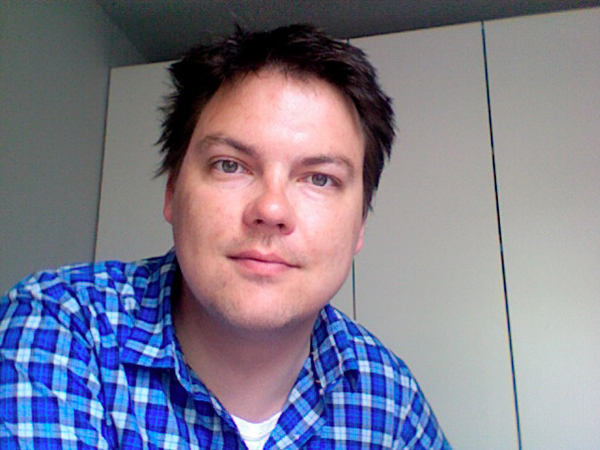
I'm a 29 year old software development enthusiast, based in the north of Belgium, with a degree in graphical design. I used to be a Java consultant for several multinationals but chose to start my own company and specialize in Python. I now do a lot of desktop development with Camelot and web development with Django and Flask.
Michael Domanski
I'm a software developer, currently freelancing, with over 2 years of professional development in python. I'm also the author of insol API for solr search engine. In the meantime I write code in C/Objective-C for mobile platforms and try to get a degree in computer science (and I'm getting closer daily :D ).
Andrew Eliasz
I run a training and consultancy company called First Technology Transfer (FTT) and also a technical bookshop that sells robotics and educational kits on the web.
An eternal student with a variety of interests, degrees and qualifications I am passionately committed to encouraging and fostering an interest in science and technology in young people especially girls, as they are sadly, under-represented in these fields.
I believe that science and technology is for all, not just a priviledged, "Oxbridge, Imperial, UCL and Ivy League educated" elite, and that European manufacturing, especially UK manufacturing, will only thrive in a culture where science and technology are perceived as being accessible, and, more importantly, seen as being both fun and rewarding.
Many great companies were started in simple workshops and garages e.g. Nuffield building early Morris cars in a "cycle shop", Hewlett and Packard building instruments in their garage. Sadly many such companies were later destroyed by either incompetent trade unions, or "blinkered" government ministers, or greedy investors and speculators, as well as unimaginative and "technologically illiterate" bankers. Sadly, often a combination of all the above.
One of the great things about Arduino is the enthusiasm with which it is being taken up by many working in the arts and the media. I think that it is a "seedling" that needs to be lovingly nurtured in the hope that a combination of "creativity" and "technology" will leed to products, services and industries that are more about "the common good" than about the "accumulation of wealth".
Note: you said not to be shy ... and, under the current politicial and economic circumstances, I am afraid that I could not resist a little "soap box oratory".
Martijn Faassen
Martijn Faassen has been a Python programmer for over a decade. He has worked on many projects but is especially active in the Zope community. He's also the founder of the lxml project which is the go-to library for XML programming in Python.
In the last few years he's been busy kicking Zope into the second decade of the 21th century a few years early with the help of a caveman called Grok.
Esteve Fernandez
Based in Barcelona, Esteve Fernandez is the CTO of Fluidinfo where he works on the design and implementation of FluidDB - a new non-relational database. An active member of the Free Software community, he is an Apache Software Foundation committer and a Twisted developer. Prior to Fluidinfo, he was a Software Architect at BMAT (2006-07), a Software Architect at Scytl Secure Electronic Voting (2005-07), a Software Engineer at AASIT (2004-05) and a Programmer with Sindominio (2000-03). He holds a M.Sc. in CS from the Open University of Catalunya, and a B.Sc. in CS from the University of Barcelona.
Jonathan Fine

Jonathan is trained as a mathematician, and is an expert in TeX and LaTeX. He learned Python because he wants to use it as a front-end language to the excellent TeX typesetting engine. Since then he's set up TeX as an online web-service for rendering formulas and is busy writing client side JavaScript to take advantage of MathTran.
He works for The Open University as a specialist in TeX and mathematical content, and currently has an internal secondment to work on problems and solutions of mathematical content on web pages, particularly in the context of distance learning.
Mark Fink
Mark Fink earned a diploma degree in Computer Science at the Georg-Simon-Ohm UAS in Nuremberg, Germany. Programming is pure fun for him so after graduation he started as ... a programmer! Already in his first project assignment he realized that testing of the finished product was not given enough attention which resulted in bad quality of the product. That experience was bugging him constantly. Consequently he moved into testing and test automation.
Mark Fink has years of professional experience in the areas of continuous integration, performance testing, and functional testing. He started programming Python in 2005 when he needed tools for bulk file analysis. Meanwhile Python is his first choice for programming testing tools and utilities.
Michael Foord
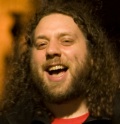
Michael Foord has been programming with Python since 2002. He is the author of "IronPython in Action" for Manning Publications, and blogs and writes far more on Python than is healthy. In 2008 he was made the first Microsoft MVP for dynamic languages.
Since 2009 Michael has been a committer to the core Python project and somehow found himself the maintainer of the unittest module.
Ben Ford
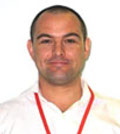
I've been a python developer since 2003-4 when I sat down with a Red Hat book and a python book and decided to learn to code. Django opened my eyes to web programming in 2005 and reading the source code expended my python knowledge to the point where in 2007 python became my full time occupation. In 2009 I was technical reviewer for Practical Django Projects 2 and I'm currently contracting in the financial industry.
Andrew Francis
Living in Montréal, Andrew Francis has an academic background in the humanities, computer science, and management. Professionally, Andrew has worked at companies such as Bell Northern Research, Omnimark, and Adobe Systems in California. Ever since 2005, Andrew has been playing with Stackless Python, as a part of his work with WS-BPEL, and he has never looked back! At Pycon 2008, Andrew gave the talk “Adventures in Stackless Python/Twisted Integration.” Andrew also substituted for Christian Tismer for "Stackless 101"
Oskar Gabrielson
CTO and Managing Director at Swedish based web developers ESN (http://www.esn.me).
Shipped web technology for over 1 million end-users on a vast number of technologies.
Andrew Godwin
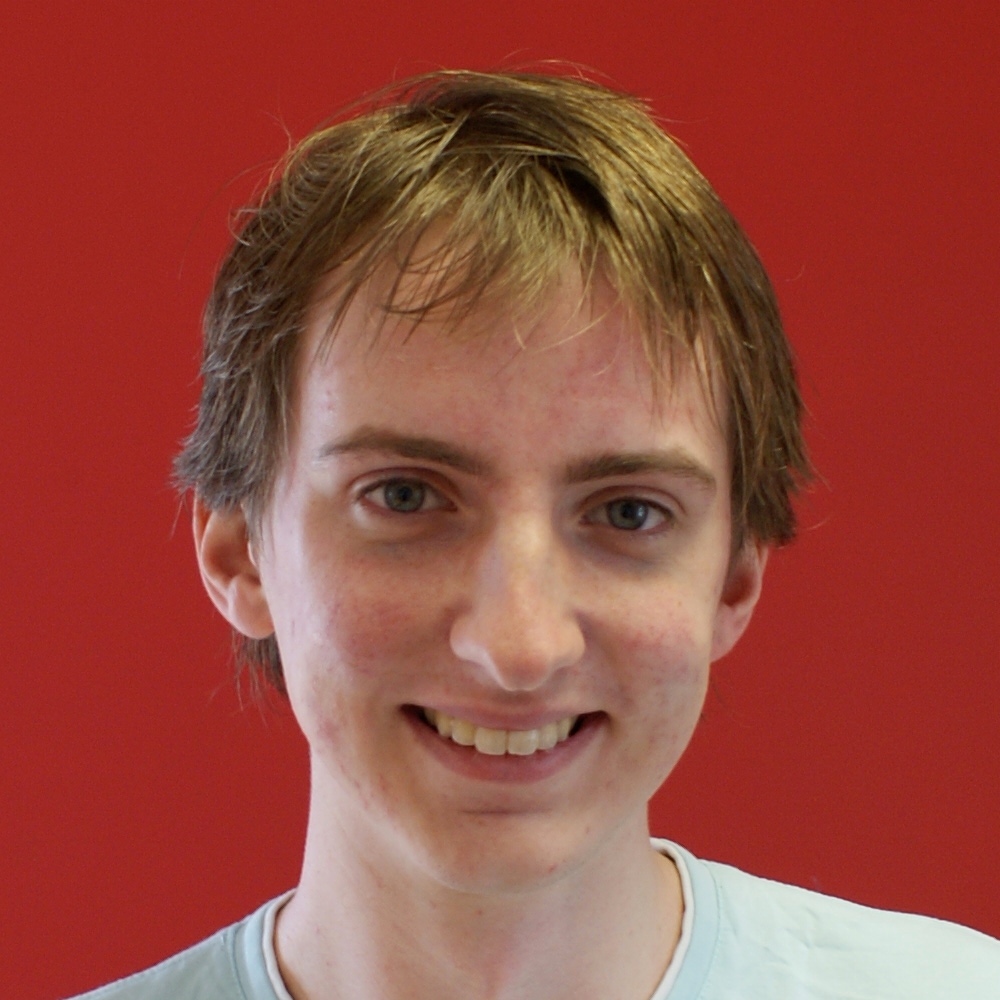
Andrew is a freelance Django developer, and has been torturing Python in one way or another since 2005. He maintains South, the leading Django schema migration tool, and in his spare time enjoys writing device drivers in Python, fiddling with Arduinos, and cycling.
Tim Golden
I've been a professional software developer for 20 years and a hobbyist programmer for nearly 10 years longer than that. I stumbled upon Python 1.5.2 when looking for a free implementation of Modula-3. I clicked with Python immediately and have been using it professionally, personally, and as a teaching tool ever since.
I champion Python running on Windows, offering help, advice and working code where possible. And as of very recently, I'm also a core committer to the Python repository.
Erik Groeneveld
Erik just loves programming. After a couple of years of advice, research and coaching and change management, he has returned to his first love and now runs the Software Studio in his own company Seek You Too.
Erik cofounded Agile Systems [http://agilesystems.org] which organizes XPDays Benelux [http://www.xpday.net].
Erik always tries to improve on whatever he is doing. This led to, for example:
(True) Delegation in Java [http://sourceforge.net/projects/delegator] (SPA conference 2005).
Program Decomposition with Python 2.5 generators [http://weightless.io] (SPA conference 2008).
Currently, Erik is actively involved in the Meresco component library [http://meresco.org]. This includes some interesting gems he hopes to bring to conferences in the future.
Manu Gupta
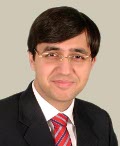
Manu Sheel Gupta is the Founder and Chairman of the Software for Education, Entertainment and Training Activities. He has served as the former South-Asia Liaison at One Laptop per Child, where he acquired a wealth of experience in numerous technical and leadership roles. He worked closely with the governments and organizations in India and Sri Lanka to help build olpc foundations in these countries.
An engineering graduate of the University of Delhi, Manu served as the Chairman of the Computer Society of India chapter at his school.
In the social profit sector, Manu has worked as the Director, Business Development at India School Fund. He also serves on the board of advisors for C.S.I., D.U. He has been a pioneer in developing software, and co-authored paint, spreadsheet, and e-book reader for OLPC.
Håkan Rosenhorn (ESN Social Software AB)
Håkan has been developing web applications for the last decade using a variety of languages and tools. He co-founded ESN and works there developing the real-time web framework Planet. On his spare time he is hunting new technologies, doing some DJ'ing and building a house.
Jonathan Hartley

Jonathan is delighted to find himself developing in IronPython for Resolver Systems, a feisty start-up populated entirely by people who are smarter than he is. He lives in London with his lovely wife Susan and a growing collection of trusty Guitar Hero controllers.
Thomas Herchenröder

Thomas started using Python when its 1.4 version was current. Unfortunately, he got washed away by other things. Since a few years he is happy being back into Python development, putting his efforts into the open-source Javascript framework qooxdoo, where Python powers the home-grown development tools.
Raymond Hettinger
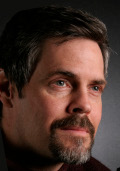
Raymond is a core developer for the Python language and is responsible for introducing generator expressions, creating the itertools module, optimizing the implementation, and designing several builtin functions including any(), all(), set(), frozenset(), sorted(), reversed() and enumerate(). He is active in the developer newsgroup and serves as a board member for the Python Software Foundation. He is the author of 40+ recipes in the ASPN Python cookbook and actively maintains several third-party Python tools including a matrix/eigenvalue package and a generic puzzle solving framework.
Hannes Hochreiner
Trained as a chemist, I first developed an interest for programming during my undergraduate studies. Starting with HTML, CSS and JavaScript, I moved on to Delphi and Java. I applied my skills in web development projects as well as in data processing and chemometric applications.
During my PhD, I worked on fibre optic modelling, for which I used C++ and MatLab. This was also the time when my interest in open-source software and the community around it intensified. Realising that I did more and more of my work using open-source solutions, I wanted to replace the proprietary presentation program I used as well. Therefore, I started working on JessyInk. This work introduced me to Python. Since then Python has become my language of choice for many projects including web development, scripting solutions and writing of extensions.
Peter Howard
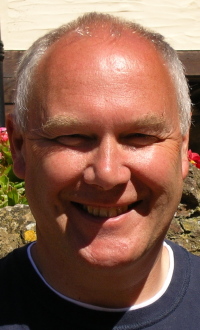
- Brief Biography: I'm the technical lead for Xype Ltd's software engineering service today - working with a great team of 15 to 20 developers. But it all started over 20 years ago .... (cue whimsical music)
I was quite content learning about thermodynamics, vibrations and so on in the early Eighties, when computing kind of burst forth and distracted me thoroughly. (Commodore Pet with audio casette for storage). Technology waits for no man, and Basic/CPM gave way to 'C' on Unix, and with hardly a pause for breath, people were suggesting that networking computers might have some advantages over 5.25 inch floppy discs. Next thing you know (after a brief flirtation with Pascal), we're in the C++ and OO world, and people are getting all fussy about expecting a GUI! Onward to Perl, Java and Python. And here we are.
In parallel, I steered my way in and out of various industries: CAD/CAM, iSCSI storage, chip design, and solar powered ticket machines. And learned a little about how the differing business models affect development. From commodity product, to venture funded startups, to consultancy, to research, to 'oh! it has software inside it?'. And of course something about leading teams, and the trials and tribulations of project management.
Putting frivolity aside, I suspect our industry and the technology we use continues to charge ahead as fast as it ever did - which is exactly why I feel priviledged to be taking part in this conference. I'm looking forward the time not so distant, when the Python world today, sounds just as ridiculous to a new graduate as my early experiences probably does today.
Jason Huggins
Tony Ibbs
Tony Ibbs (Tibs) has been working as a software toolsmith for the last 30 years, leaving a trail of useful utilities and documentation behind him.
He has been using C since 1988 and Python since 1994. He is one of the founders of the Cambridge Python User Group. KBUS is his first Linux kernel module.
Grzegorz Jakacki (Codility)

Grzegorz Jakacki works as a programmer-in-trenches and tech lead for 10+ years, in 2005 he came up with idea of automating the assessment of programming skills and applied it at a mass scale. In 2008 he formed Codility, a company that offers on-line programming test.
Erik Janssens
Erik Janssens works as an independent software engineer and has led multiple large Python projects involving Django, OpenErp and Camelot in industry, finance and public services. Before starting his own company he got a Master in Electronic Engineering at the Free University of Brussels and worked for major telecom and micro electronic companies.
Dmitry Jemerov
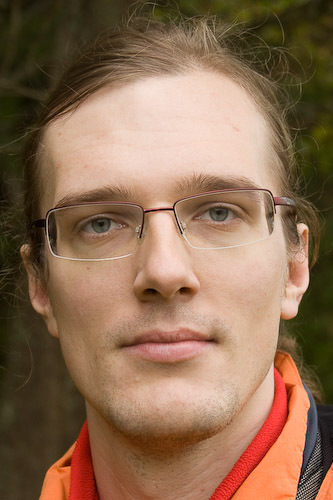
Dmitry Jemerov is the PyCharm project lead. He's been with JetBrains since 2003, having worked on Omea, IntelliJ IDEA, PyCharm and other products. He's been using Python since around 2000, mostly for his personal projects.
Richard Jones
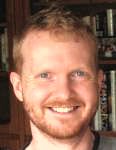
Richard has been writing and playing video games for as long as he's had a computer, starting with his Commodore 64. The writing part has gotten a lot easier with simpler languages and well-constructed libraries. He runs the bi-annual PyWeek game development challenge, and has come first place in the individual rankings for his game Bouncy the Hungry Rabbit (which appears in some Linux distributions and some magazine cover disks).
Terry Jones
Bio - this is reduced from a version O'Reilly use. If you want more meat, see http://en.oreilly.com/et2008/public/schedule/speaker/4631
Terry Jones is founder/CEO of Fluidinfo, a startup based in New York. Previously he was a postdoc in Zoology at the Uni. of Cambridge (2004-07), part-time professor in CS at Pompeu Fabra (2005-06), CTO of Eatoni Ergonomics in New York (2000-04), a postdoc in Cognitive Science at UCSD (1998-99), CEO of Teclata in Barcelona (1996-98), and a postdoc and graduate fellow at the Santa Fe Institute (1992-96). He has a Ph.D. in CS from the Uni. of New Mexico, an M.Math from the Uni. of Waterloo, and a B.Sc. in CS from Sydney Uni.
Jason Kirtland
Jason Kirtland is a software engineer at Idealist.org and active contributor to open source. Jason lives, works, plays and organizes the Python user group in Portland, Oregon USA.
Holger Krekel

Holger Krekel is a co-founder of the PyPy project and participates on many levels. He is the initiator and maintainer of the popular py.test and a few other tools. In 2004 he founded merlinux, a company focusing on PyPy and py.test developments. Holger has spoken at many EuroPython and PyCon confereces and gave well received testing tutorials at EuroPython 2009, Pycon-UK 2008 and Pycon US 2010.
Hannu Krosing
I have been a python user since version 1.1 and PostgreSQL user since before it was even called PostgreSQL and have also contributed code for both.
Large portion of python code I have written has had to do with databases, be it binary protocol or file format hacking, or using python to automate data loading, backups or just plain data manipulation.
I was the first (and for some years the only) DBA for Skype, where we used python for most data backend manipulation tasks and where I invented a proxying and database partitioning language pl/proxy which lets you build unlimited scalability into your database backends with relative ease , both from developer and administrator viewpoint.
For last few years I have been helping companies to manage and scale their postgreSQL databases as Database Consultant at 2ndQuadrant (www.2ndQuadrant.com) , as well as evaluating technical merits of startups at ASI , the investment company of Skype founding engineers (www.asi.ee).
Łukasz Langa
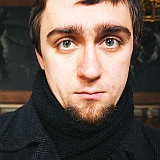
Łukasz Langa is a rookie father and husband based in Poznań, Poland. In his free time he's working as a contractor for companies using Python including STX Next, a company developing solutions for the banking sector in Poland. Łukasz is a perfectionist, big fan of readable and testable code, building stuff is his thing since the first box of Legos.
Luke Leighton
Luke Leighton is an independent Free Software Developer and advocate, who chooses to advance areas of Free Software Technology that nobody else focusses on, typically by joining several existing technologies together in unexpected and creative ways.
Marc-André Lemburg
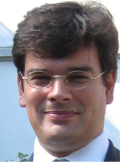
Marc-Andre is the CEO and founder of eGenix.com, a Python-focused consulting company based in Germany. He has a degree in mathematics from the University of Düsseldorf. His work with and for Python started in Winter 1993. In 1997, he became a Python Core Developer and served on the board and as vice-president of the Python Software Foundation (PSF). Marc-Andre is the author of the well-known mx Extensions, e.g. mxTools, mxDateTime and mxODBC, which are now distributed and maintained through eGenix.com. Today he spends most of his time managing custom projects heavily relying on Python and databases.
Martin V Löwis
Matteo Malosio
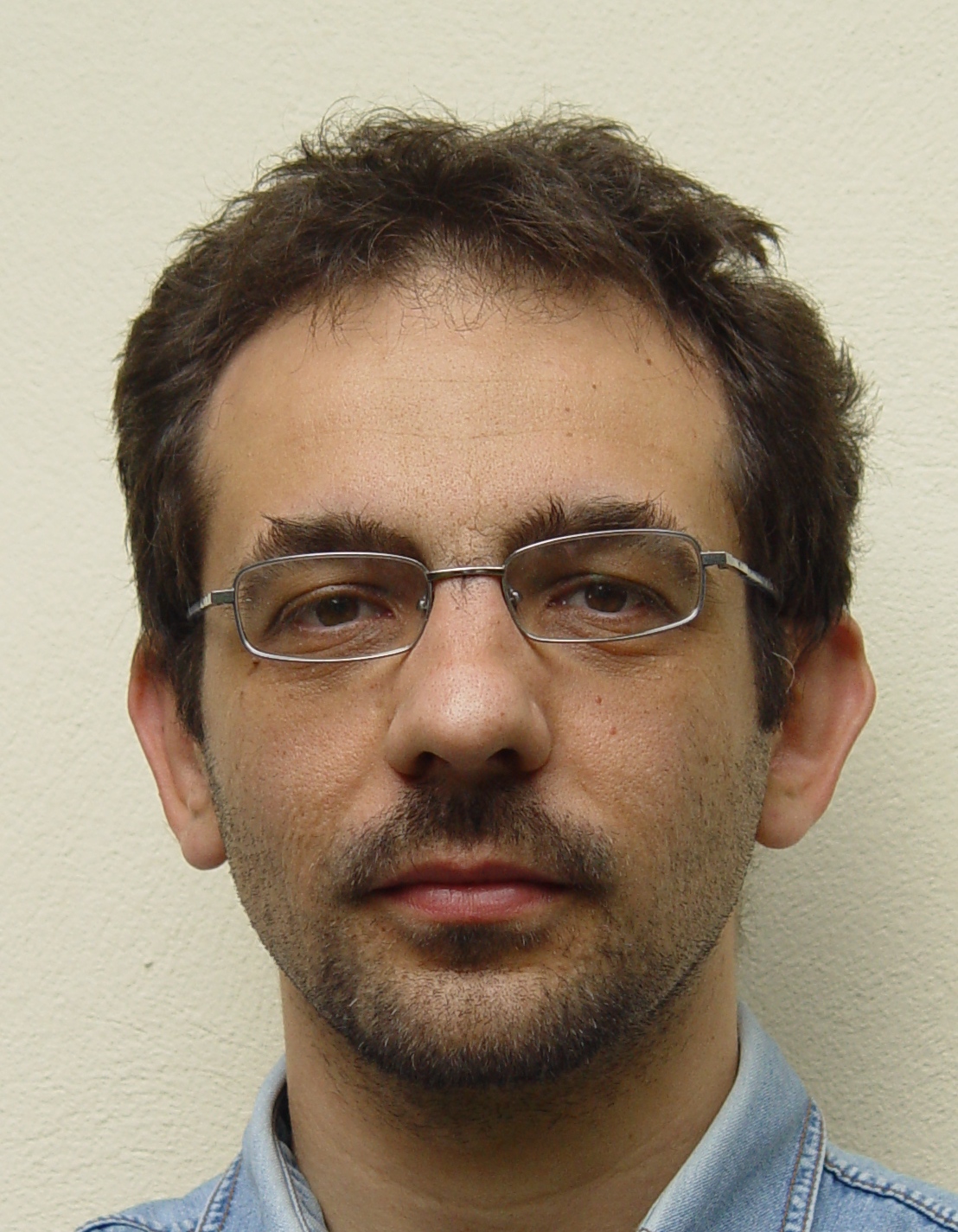
Mechanical Engineer, specialized in Automation and Robotics. After an industrial experience I got employed in the Institute of Industrial Technologies and Automation of the National Research Council of Italy as a researcher. My researches focuses on the conception of innovative-kinematic robots, mainly parallel kinematics machines. With good experiences in mechanical design I became keen on computer programming, falling in love with Python... I'm currently involved in the development of a multisensorial robotic platform for robot-aided rehabilitation of stroke patients.
Daniel Marks
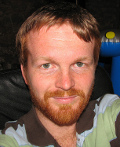
Plone, Zope and Grok developer at Netsight. Father. Not quite a cricketer.
Harald Armin Massa
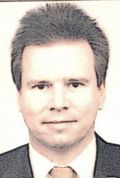
Born. Education in Data Processing and a lot of economics. Own company GHUM Harald Massa since 1999. Doing Python development, PostgreSQL and Oracle databasing, giving seminars and being a speaker. Initiator of ncc1701 project, making Python ready for the Enterprise. Translator for pgadmin and pginstaller projects. Chairing some lightning talks @ EuroPython
Donald McCarthy
I am Donald 'Paddy' McCarthy. I've been using Python for around 15 years. My goal has been to politely promote Python on-line and do this as user paddy3118 on various forums lately www.rosettacode.org, where I have created fifty tasks and their python examples as well as seen one of the tasks I started rise to become the most viewed on the site after their main page. My blog is "Go Deh" at paddy3118.blogspot.com, and I used to be active on the python newsgroup until I gave up because of spam.
My main success has been in keeping polite on the web!
Ezio Melotti

Ezio was born in Milan (Italy) and decided in 2007 to move to Turku (Finland); where he studies Information Technology and teaches Python Programming at the Turku University of Applied Sciences. In June 2009, Ezio became a Core Developer of Python, contributing more than 300 commits. Ezio presented the talk 'Unicode and Python 3' during the PyCon3 IT.
Sarah Mount
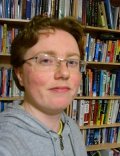
Sarah Mount is a Senior Lecturer in Computer Science at the University of Wolverhampton. Her interests lie in the area of programming languages and tools, especially for wireless sensor networks and other distributed systems. She has taught introductory programming to undergraduate students for nine years and is a co-author of the text book Python for Rookies.
Gustavo Narea
I've been in the Web development area for over 6 years and I've spent the last few years programming almost exclusively in Python.
I am a core developer at projects like Repoze and TurboGears, where I work on reusable WSGI-based authentication and authorization components.
I have also started to contribute to Django recently, in order to make WSGI support a first-class citizen in this framework.
Ade Oshineye
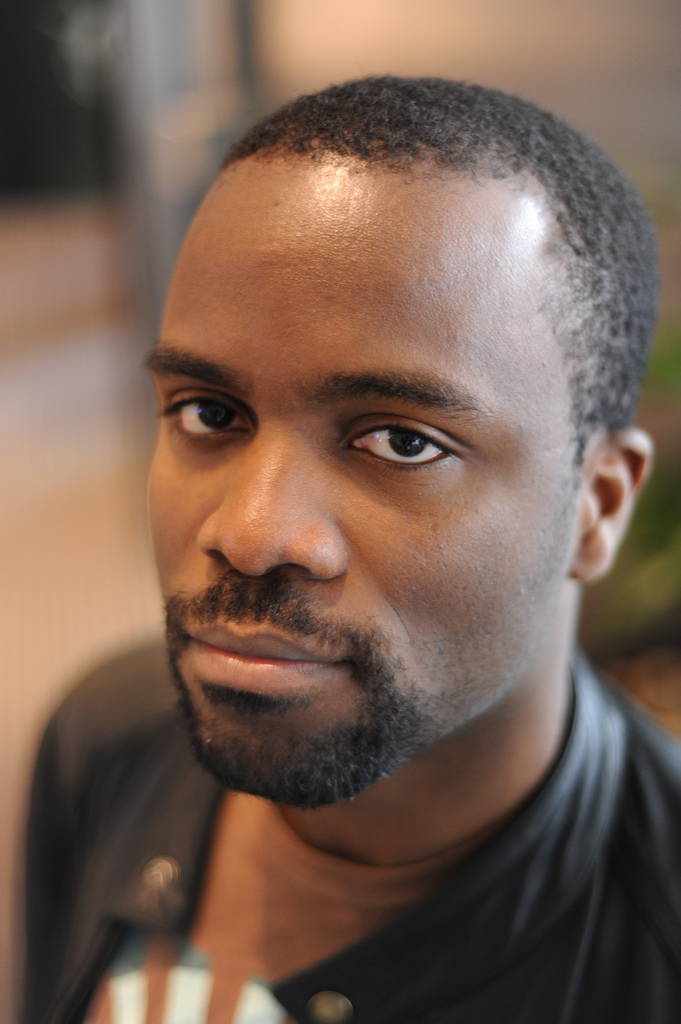
I'm an engineer at Google but more importantly I took over the maintenance of the Universal FeedParser that Mark Pilgrim created. I'm also one of the maintainers of JaikuEngine.
I'm the co-author of O'Reilly's Apprenticeship Patterns. My co-author and I used to be consultants at ThoughtWorks.
If you've been to previous Python conferences you'll have seen me taking me photos of everything that moves.
Sven Passig

I started programming at the age of 11 and immediately fell in love with it.
Afer a short intermezzo as a civil engineer I came back to my first love and since than (ten years) developed application in C++, Perl, Python and JavaScript. I am a lead developer in a small company in germany.
I am currently 39 years old and married to the undoubtedly most fantastic woman on this planet (I would argue about this ;-)). We have two kids at the age of four and six.
Fabien Pinckaers
Fabien Pinckaers was only eighteen years old when he started his first company. Today, over ten years later, he has founded and managed several new technology companies, all based on Free / Open Source software.
He originated Tiny ERP, now Open ERP, and is the director of two companies including Tiny sprl, the editor of Open ERP. In three years he has grown the Tiny group from one to sixty-five employees without loans or external fund-raising, and while making a profit.
He has also developed several large scale projects, such as Auction-in-Europe.com, which become the leader in the art market in Belgium. Even today people sell more art works there than on ebay.be.
He is also the founder of the LUG (Linux User Group) of Louvain-la-Neuve, and of several free projects like OpenReport, OpenStuff and Tiny Report. Educated as a civil engineer (polytechnic), he has won several IT prizes in Europe such as Wired and l’Inscene.
John Pinner
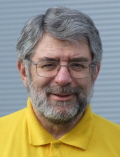
John Pinner has been using Unix and then Linux for more years than he cares to remember. He and his company, Thyme Software (formely Clockwork Software Systems), have been using Python as their main development language since 1999 for applications as diverse as electromagnetic compatibility testing and payroll. Through the Linux Emporium they offer both scheduled and bespoke Python training courses, and have provided tutorials at Free Software conferences.
William Reade
William studied maths at university but somehow ended up becoming a developer; he's worked on games, business apps, consumer utilities and even the odd USB driver, and you will pry his Python from his cold dead hands.
He recently moved to Malta, where he works for Uniblue, and these days never seems to get around to updating Ironclad; he blames fatherhood and sunshine, and hopes to one day find a happy medium between lazy contentment and insomniac workaholism.
Paul Redman
Technical architect, with over 20 years of experience in software development.
Started developing in Z80 machine code, much prefer Python!
Lennart Regebro
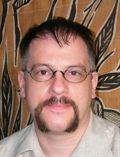
Lennart Regebro has been using Python for ten years. He is a Python contractor, usually doing Zope and Plone.
He is trying hard to get to use Python 3 more, and has been porting modules to Python 3 for two years.
Bruno Renié

I am a French student who discovered Python in 2007 when learning how to use Django. It is now my language of choice for my projects, essentially related to web and network programming.
Mike Rhodes
Mike has been building things with code for a long time, but only recently came into working with Python and Zope after deciding to move from being a researcher HP Labs to be closer to the code at Netsight in November of 2009.
After the initial steep learning curve of Zope, he realised there is a lot of power and simplicity at work inside, but much is sparsely documented. He wants to tell people about this.
Mike lives and works Bristol, where he has been for nine years after arriving as a student.
Daniel Roseman
I am a web developer who has been using Django for four years, ever since version 0.91, and professionally for two years, working on several large-scale Django sites. I'm active on the Django users groups and am the top Django answerer on StackOverflow.
Laurence Rowe
Laurence is an itinerant Plone consultant.
Kay Schlühr
Born and raised in Hamburg, Germany. University education as a diploma mathematician.
I started to work as a freelancing programmer in the golden age of the first internet hype in 1998. Since then I discontinued to work in the IT business only for longer excursions into applied informatics research and for advancing my OSS projects, something I do love. Next to this I enjoy to reflect programming as a culture, which inspired once an assertion made by some colleagues that I'm not a technician by heart but rather a humanist intellectual. Curiously I believe I'm becoming less serious and philosophical as I'm growing older and more playful and technical.
Stefan Schwarzer
Stefan Schwarzer started programming on an Apple II in 1983. After using Basic, Pascal, Assembler, Forth, C++, Perl and several other programming languages, Python became his favorite in 1999.
Though academically he went the engineering route at first, resulting in two degrees in Chemical Engineering and a PhD, he became a software project lead in 2000 and a freelancer in software development and consulting in 2005.
Stefan has published a book on Python as well as several articles. He has also given talks at EuroPython and other conferences.
In addition, Stefan works on ftputil, an easy to use though versatile FTP client library, available at http://ftputil.sschwarzer.net .
Mark Shannon
I am about to complete my PhD at the University of Glasgow, entitled "Building High-Performance Virtual Machines for Dynamic Languages".
I started programming Python in 2005 and have been avoiding other languages ever since.
During my PhD I developed the HotPy VM and the Glasgow Virtual Machine Toolkit, both of which can be downloaded from Google Code.
Michele Simionato
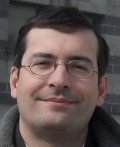
Michele Simionato is an eclectic software developer with an interest in languages and programming techniques who would like to make the programmer's life easier. Michele started his career as a Theoretical Physicist, working in Italy, France and the U.S. He turned to programming in 2003; since then he has been working professionally as a Python developer and now he lives in Milan, Italy. Michele is well known in the Python community for his posts in the newsgroup(s), his articles and his Open Source libraries and recipes. His interests include object oriented programming, functional programming, and in general programming metodologies that enable us to manage the complexity of modern software developement.
Soeren Sonnenburg
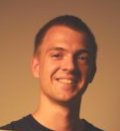
I am currently a postdoc at the Machine Learning / Intelligent Data Analysis Group at the Berlin Institute of Technology in Berlin. I have been working in the IDA group at the Fraunhofer Institute FIRST and the Friedrich Miescher Laboratory of the Max Planck Society in Tübingen. I am intrigued by sequence based machine learning methods involving large data sets and have developed several machine learning methods for bioinformatics applications such as splice site recognition, promoter detection and gene finding. I also worked on microarray analysis and motif discovery.
Jasper Spaans
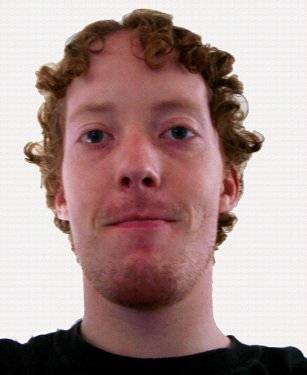
I'm a certified rocket scientist with several years of professional Python experience.
I'm employed as a software developer at Fox IT, a Dutch IT security company, writing software to help us defend against the bad guys.
My interests lie in the area of statistical analysis, functional programming and doing cool stuff with GPGPU's (like Cuda and OpenCL), but I also like playing with tiny platforms like Arduino.
Michael Sparks
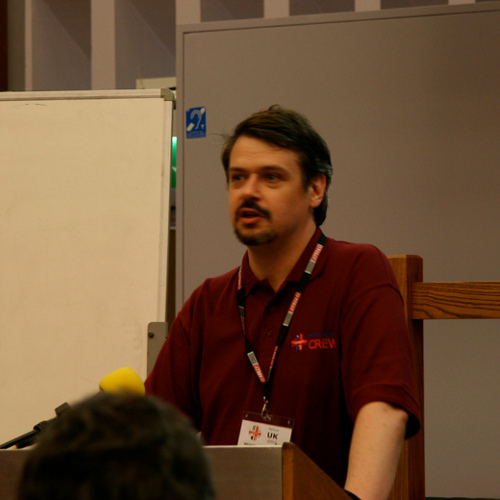
Michael started writing code many many years ago, starting with those Usborne books with pictures of little robots back in the 80s on a ZX81. Over the years he's coded with a variety of stuff as a result, moving through 8 bit micros, to Amigas then to PCs, skipping to Linux over 10 years ago before it became fashionable. He settled on Python after years of BASIC, 6502 & 68000 machine code, C, Amiga E, perl, C++, Java and a smattering of other languages, and rarely feels the need to make his life hard by using a different language, though he does when a clear need arises.
Michael currently works at BBC Research as a Senior Research Engineer. His work there has involved all sorts of stuff from large scale network systems through digital TV transcode & archive systems, through user participation toolsets, web, mobile & TV, almost exclusively in Python for the past several years.
Sharoon Thomas

Business Analyst and Open Source ERP consultant working with Open Source Business Solutions in python. Started using python for programming embedded GPS devices, but ended up using python for ERP systems. Free software enthusiast and CEO of Openlabs Business Solutions (http://openlabs.co.in).
Finding solutions to business problems using python based ERP systems - Tryton and Open ERP is my every day job!
Julian Todd
Julian first discovered Python while webscraping the votes and speeches of the UK Parliament in 2003 for a project that eventually became theyworkforyou.com. He then carried on with many other webscraping projects (such as undemocracy.com) before finally stumbling across the staggeringly obvious idea that became Scraperwiki. His proper job is writing machine tool algorithms for HSMWorks, which he will get back to once everyone else writing his scrapers for him.
Nicholas Tollervey
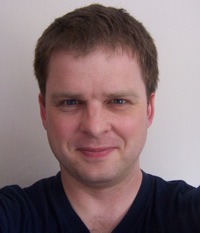
Nicholas is a classically trained musician, philosophy graduate, teacher, writer and software developer who has been using Python for almost 2 years.
Matias Torchinsky
i had been involved with computers since kid, programming in BASIC with MSX-DPC200. later on, learned and enjoy programming and developing with other programming languages such Pascal, smalltalk, squeak , C , C++ and so on. Having experience in clusters, schedulers, network programming. During the last years had been focused on networking, mainly TCP . Docsis and PacketCable. Programming and enjoying python since 2007. I Got my MsC degree in Computing Sciences (Spain) Lastly I had been participating as speaker of PyCon 2010. Now i'm working as VP of engineering of a medium size company related to provisioning software.
Semen Trygubenko
I hold Physics degree from The University of Kyiv-Mohyla Academy and Theoretical Chemistry degree from the University of Cambridge.
For the past few years I worked as a research programmer, specializing in the fields of low-level machine vision and pattern recognition.
Guido van Rossum
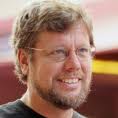
Guido van Rossum is a Dutch computer programmer, currently working at an American company called Google (on the App Engine team), who has a long standing interest in Python ... having written the first version in 1989 and overseen the Python development process since then.
Henrik Vendelbo

My main focus is Interaction Design and Usability. I have used Python to build the server side of web applications, and am currently working on using it for a a mesh of local servers.
Web Browsers is another environment where I spend a lot of time. With HTML5 I see most user interfaces moving there even for things that would previously be implemented as a traditional GUI application.
Zachary Voase
I’m an independent Django developer from London. In 2007 I took part in the first Google Highly Open Participation Contest, and I’ve been active in the Django and Python open-source communities ever since, working on several libraries and Django apps.
I discovered the Semantic Web movement about a year ago, and I’m always looking for new ways to utilize Linked Data and some of the fantastic technologies that have developed around it.
Tomasz Walen (Codility)
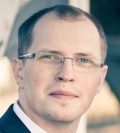
Tomasz Walen, PhD has been hacking automated code assessment systems for the last 7 years organizing numerous programming competitions and Olympiads in Informatics. He researches text algorithms at Warsaw University and serves as a Tech Lead at Codility Ltd.
Richard Watts
Richard Watts spends too little time writing Python. He has previously perpetrated web applications, video decoders, and set top box stacks and currently runs a small embedded systems and A/V consultancy.
He once did a PhD (but has now mostly recovered) and is a bye-fellow of Selwyn College, Cambridge.
This is his fourth build system. He's starting to get the hang of it now.
Alex Willmer
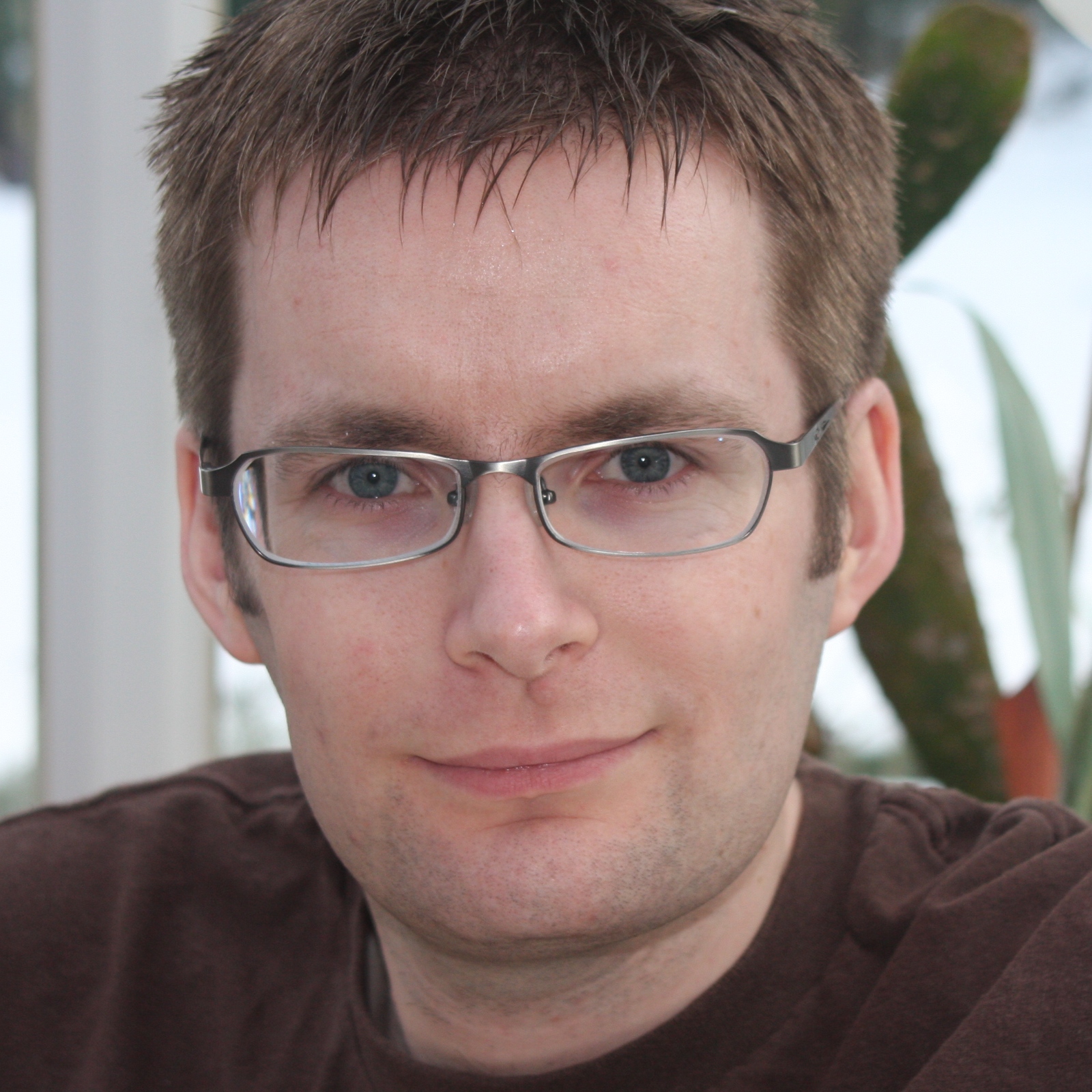
Alex Willmer is a GIS and application administrator with 5 years experience. He has spoken at PyCon UK, UKUUG, and to local groups on GIS and data loading.
He uses Python for system administration, data processing, monitoring, loading and system administration. His interests include mapping, lasagne and electric vehicles.
Scott Wilson

Scott Wilson is a Geneva-based python developer with http://www.idealist.org/, frequent flatland user and occasional flatland contributor.
Russel Winder
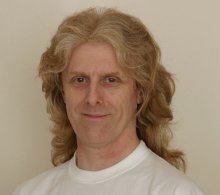
Russel was Professor of Computing Science at KCL but left academia to run startups. His research has always been associated with parallelism and psychology of programming. He is currently working as a consultant, mentor, author and trainer whilst working up the next idea for a startup.
Zeth
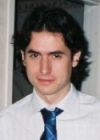
Zeth is a web development consultant based in Birmingham, who works for the University of Birmingham, as well as doing freelance work for private companies. Zeth is also, for unknown reasons, co-lugmaster of Birmingham Linux User Group, founder of Python West Midlands and vice-chair of the PyCon UK Society.









